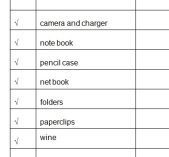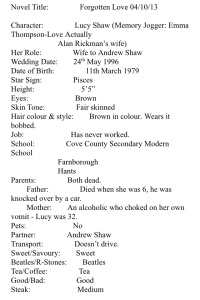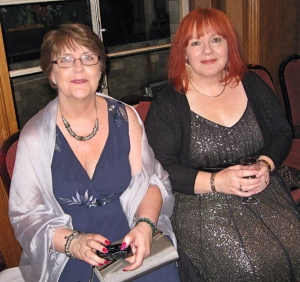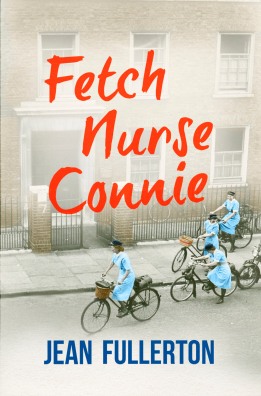Francesca considers the preparation needed to get the best out of writing events.
 July is fast approaching, a time for me that is busy with writing related trips away. Both the big ones in my writing year happen in July. I wish they were a bit more spread out, but there it is.
July is fast approaching, a time for me that is busy with writing related trips away. Both the big ones in my writing year happen in July. I wish they were a bit more spread out, but there it is.
The two events – the Romantic Novelists Association weekend conference and the Fishguard (formerly Caerleon) Writers’ Holiday, are quite different, but I prepare for both in order to get the maximum out of them.
The RNA conference, only two weeks away now (where has the year gone?), is very valuable in that it provides industry one-to-ones with publishers, agents and independent editors. When the conference pack hits the mat in May I quickly email over the appointments I’d like before they’re snapped up. But before I do that, I find out which publishers/agents would be best for my book so do a little research. There’s no point in sticking a pin in and hoping I get lucky.
Having sent off the required synopses and first chapters to the organiser to be passed on, I then need to prepare any questions I’d like to ask, or think of answers to questions I might be asked, and write them down. I will not remember them at the best of times, let alone under stress.

Caerleon 2013. Rosemary Goodacre, Angela Johnson, Elaine Everest, Ann West, Natalie Kleinman, Linda Barrett.
The RNA Conference offers many brilliant talks; often there are three going on at the same time. I plough through the programme and subject matter, often looking up the people speaking so that I can pick talks that are going to enhance my writing knowledge.
With the Fishguard Writers’ Holiday it’s a lot simpler, with two courses to pick from around eight (though it’s still hard to choose!). I’m a little more relaxed with the ‘after tea’ sessions and often don’t pick which one to attend until the day. There’s only one evening talk so I don’t have to think about that at all.
But what to pack? On the computer I keep a list of items necessary for these occasions so that every year I don’t have to make them up from scratch again.
 Number one item, of course, is the notebook. Like many writers I know, I do love a beautiful cover. What’s more important is that it’s dedicated to that particular course or conference. Afterwards it gets labelled with the event and year before it’s put on my shelf. I learnt the hard way how difficult it is to find the useful info you learnt or the ideas/inspiration you had when you use the same notebook for lots of different things. Some people I know favour using a laptop or net book, which I guess helps to keep the information organised. However, some events dissuade their use because of the noise of the keys.
Number one item, of course, is the notebook. Like many writers I know, I do love a beautiful cover. What’s more important is that it’s dedicated to that particular course or conference. Afterwards it gets labelled with the event and year before it’s put on my shelf. I learnt the hard way how difficult it is to find the useful info you learnt or the ideas/inspiration you had when you use the same notebook for lots of different things. Some people I know favour using a laptop or net book, which I guess helps to keep the information organised. However, some events dissuade their use because of the noise of the keys.
Though they’re often provided, I always take several folders to put the handouts in. There’s nothing worse than coming home to a scramble of notes and having to spend ages sorting through them. Paperclips are also useful for the same reason. And I wouldn’t go anywhere without my pencil case: different coloured pens can be very handy when taking notes.
I always take a laptop or net book to Fishguard. Since I’m away the best part of a week, it’s useful for keeping in touch on social media. There’s also time to do writing in the generous lunch and coffee breaks between courses and talks. Last year I was busy finishing off my RNA New Writers’ Scheme entry so it was necessary. I wouldn’t dream of taking my net book to the RNA Conference though – much too hectic!
And I wouldn’t go to either event without my camera. Apart from storing memories, it’s jolly useful for taking photos to fill blog space!
What do you do to prepare for writing events?
See what I’m up to as a ‘reluctant grandmother’ on Nonna Blog
Links
Fishguard Writers’ Holiday (they also do a weekend in February)
Romantic Novelists’ Association conference (non members welcome)
Other writers’ events I’ve heard good things about:
Swanwick Writers’ Summer School
Arvon courses (run year round)












